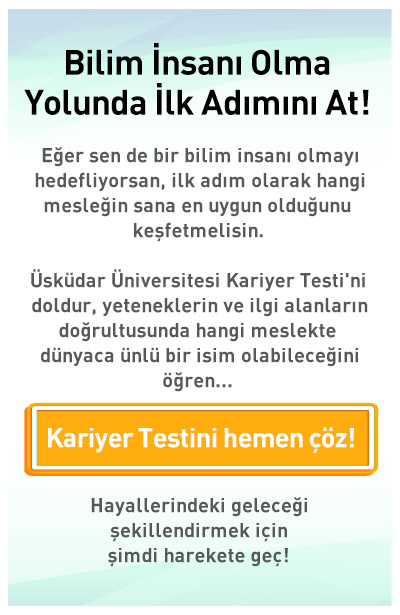Aziz SANCAR 1946
Who is Aziz Sancar?
Prof. Aziz Sancar is a Nobel Prize-winning doctor, academician, biochemist and molecular biologist born in 1946 in Savur, Mardin. He graduated from İstanbul Faculty of Medicine in 1969. He then went to Dallas and earned a Ph.D. in Molecular Biology at the University of Texas at Dallas. He completed his thesis as an associate professor in the field of DNA repair at Yale University. Since 1997, he has been working at the University of North Carolina in the USA.
The Life of Aziz Sancar
Born on September 8, 1946 in the Savur district of Mardin as the seventh of eight children of a middle-income farmer family, Aziz Sancar completed his basic education in Mardin. During his high school years, he wanted to be a football player. However, he gave up on this dream in his senior year and went to İstanbul to continue his higher education.
Aziz Sancar, who completed his master's and doctorate degrees in the United States, is a citizen of Türkiye and the United States.
Aziz Sancar, who is married to biochemistry professor Gwen Boles Sancar, founded the Aziz & Gwen Sancar Foundation with her suppose and opened a student guesthouse called "Carolina Turkish House" in North Carolina, USA to help Turkish students studying in the USA and to improve Turkish and American relations.
In an interview, Sancar said that he worked 18 hours a day until the age of 40, and then reduced this to 12 hours a day.
Aziz Sancar’s Career
In 1963, he enrolled in İstanbul University Faculty of Medicine and graduated from this faculty in 1969 with the first place. After working as a doctor in a health center in his hometown of Savur for two years, he went to Johns Hopkins University, one of the most prestigious medical education institutions in the USA, with the NATO-TÜBİTAK Scholarship he won and continued his research. Aziz Sancar, who returned to Turkey due to the adaptation problems he experienced, went to the University of Texas at Dallas after a while because he wanted to complete his education.
In Dallas, he became involved in the university's molecular biology program. Sancar, with his advisor Claud Stanley Rupert, carried out a study called "photolyase" and discovered the use of a cloned gene in the repair of damaged DNA. With this invention, he received his master's degree and then his doctorate degree in 1977.
Aziz Sancar worked at Yale University School of Medicine between 1977 and 1982. During this period, he began research on nucleotide excision repair. He completed his thesis as an associate professor in the field of DNA repair. Since 1997, he has been continuing his research in the Department of Biochemistry and Biophysics at the University of North Carolina in Chapel Hill, North Carolina, USA, known for his studies in biochemistry and biophysics.
Aziz Sancar Awards & Achievements
Continuing his studies on DNA repair, cell sequencing, cancer treatment and circadian rhythm, Sancar has published 415 scientific articles and 33 books so far. Sancar received awards for his use of the circadian rhythm in cancer treatment.
Sancar, who was awarded the North Carolina Distinguished Chemist Award given by the American Chemical Society in 2001, was elected to the US National Academy of Sciences, one of the most prestigious memberships in the scientific world, in 2005 and became the first Turkish scientist to be elected to this academy. Sancar was elected as a full member of the Turkish Academy of Sciences in 2006.
Aziz Sancar won the 2015 Nobel Prize in Chemistry with Paul Modrich from the United States and Tomas Lindahl from Sweden for their research mapping how damaged DNA is repaired by cells and how existing genetic information is preserved. For more than 30 years, Sancar, Modrich and Lindahl have been working independently of each other. The Nobel Prize in Chemistry, awarded by the Royal Swedish Academy of Sciences, was presented to Aziz Sancar by King Carl XVI Gustaf of Sweden at a ceremony held on December 10, the anniversary of Alfred Nobel's death.
Sancar, who is the second Turkish citizen to receive the Nobel Prize and the first Turkish citizen to receive this award in the field of science, stated that "What led me to the award is the educational revolution made by Atatürk and the Republic of Türkiye. Therefore, the owner of this award is the Anıtkabir Museum, which represents Atatürk and the Republic of Türkiye." and handed over the Nobel Prize, medal and certificate to Anıtkabir. Sancar's award is exhibited in the special area reserved for him in the "Atatürk and War of Independence Museum" in Anıtkabir.
The list of the most important awards Sancar has received is as follows:
- U.S. National Science Foundation Young Researcher Award (1984)
- American Society for Photobiology Award (1990)
- U.S. National Institutes of Health Award (1995)
- TÜBİTAK Science Award (1997)
- American Academy of Arts and Sciences Award (2004)
- Member of the U.S. National Academy of Sciences (2005)
- Member of TÜBA (Turkish Academy of Sciences) (2006)
- Vehbi Koç Award (2007)
- Nobel Prize in Chemistry (2015)

